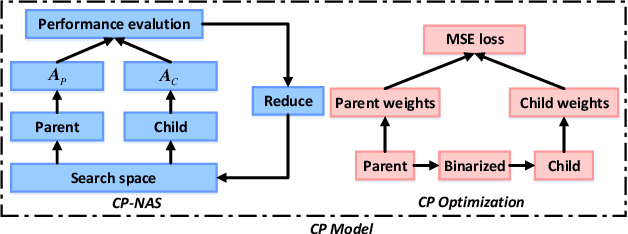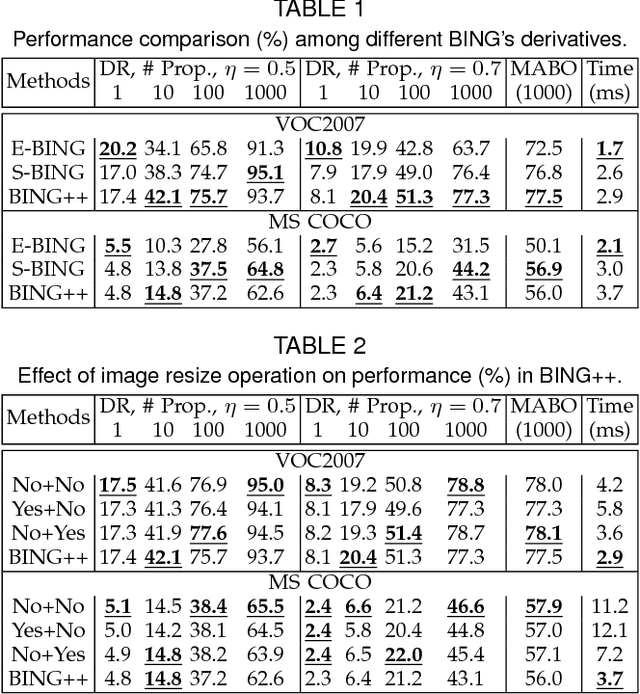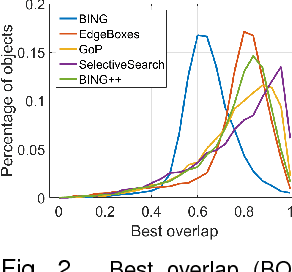Yanjun Zhu
AdSum: Two-stream Audio-visual Summarization for Automated Video Advertisement Clipping
Oct 30, 2025Abstract:Advertisers commonly need multiple versions of the same advertisement (ad) at varying durations for a single campaign. The traditional approach involves manually selecting and re-editing shots from longer video ads to create shorter versions, which is labor-intensive and time-consuming. In this paper, we introduce a framework for automated video ad clipping using video summarization techniques. We are the first to frame video clipping as a shot selection problem, tailored specifically for advertising. Unlike existing general video summarization methods that primarily focus on visual content, our approach emphasizes the critical role of audio in advertising. To achieve this, we develop a two-stream audio-visual fusion model that predicts the importance of video frames, where importance is defined as the likelihood of a frame being selected in the firm-produced short ad. To address the lack of ad-specific datasets, we present AdSum204, a novel dataset comprising 102 pairs of 30-second and 15-second ads from real advertising campaigns. Extensive experiments demonstrate that our model outperforms state-of-the-art methods across various metrics, including Average Precision, Area Under Curve, Spearman, and Kendall.
Experimenting with Affective Computing Models in Video Interviews with Spanish-speaking Older Adults
Jan 28, 2025



Abstract:Understanding emotional signals in older adults is crucial for designing virtual assistants that support their well-being. However, existing affective computing models often face significant limitations: (1) limited availability of datasets representing older adults, especially in non-English-speaking populations, and (2) poor generalization of models trained on younger or homogeneous demographics. To address these gaps, this study evaluates state-of-the-art affective computing models -- including facial expression recognition, text sentiment analysis, and smile detection -- using videos of older adults interacting with either a person or a virtual avatar. As part of this effort, we introduce a novel dataset featuring Spanish-speaking older adults engaged in human-to-human video interviews. Through three comprehensive analyses, we investigate (1) the alignment between human-annotated labels and automatic model outputs, (2) the relationships between model outputs across different modalities, and (3) individual variations in emotional signals. Using both the Wizard of Oz (WoZ) dataset and our newly collected dataset, we uncover limited agreement between human annotations and model predictions, weak consistency across modalities, and significant variability among individuals. These findings highlight the shortcomings of generalized emotion perception models and emphasize the need of incorporating personal variability and cultural nuances into future systems.
CP-NAS: Child-Parent Neural Architecture Search for Binary Neural Networks
May 17, 2020



Abstract:Neural architecture search (NAS) proves to be among the best approaches for many tasks by generating an application-adaptive neural architecture, which is still challenged by high computational cost and memory consumption. At the same time, 1-bit convolutional neural networks (CNNs) with binarized weights and activations show their potential for resource-limited embedded devices. One natural approach is to use 1-bit CNNs to reduce the computation and memory cost of NAS by taking advantage of the strengths of each in a unified framework. To this end, a Child-Parent (CP) model is introduced to a differentiable NAS to search the binarized architecture (Child) under the supervision of a full-precision model (Parent). In the search stage, the Child-Parent model uses an indicator generated by the child and parent model accuracy to evaluate the performance and abandon operations with less potential. In the training stage, a kernel-level CP loss is introduced to optimize the binarized network. Extensive experiments demonstrate that the proposed CP-NAS achieves a comparable accuracy with traditional NAS on both the CIFAR and ImageNet databases. It achieves the accuracy of $95.27\%$ on CIFAR-10, $64.3\%$ on ImageNet with binarized weights and activations, and a $30\%$ faster search than prior arts.
Sequential Optimization for Efficient High-Quality Object Proposal Generation
May 22, 2017



Abstract:We are motivated by the need for a generic object proposal generation algorithm which achieves good balance between object detection recall, proposal localization quality and computational efficiency. We propose a novel object proposal algorithm, BING++, which inherits the virtue of good computational efficiency of BING but significantly improves its proposal localization quality. At high level we formulate the problem of object proposal generation from a novel probabilistic perspective, based on which our BING++ manages to improve the localization quality by employing edges and segments to estimate object boundaries and update the proposals sequentially. We propose learning the parameters efficiently by searching for approximate solutions in a quantized parameter space for complexity reduction. We demonstrate the generalization of BING++ with the same fixed parameters across different object classes and datasets. Empirically our BING++ can run at half speed of BING on CPU, but significantly improve the localization quality by 18.5% and 16.7% on both VOC2007 and Microhsoft COCO datasets, respectively. Compared with other state-of-the-art approaches, BING++ can achieve comparable performance, but run significantly faster.
 Add to Chrome
Add to Chrome Add to Firefox
Add to Firefox Add to Edge
Add to Edge